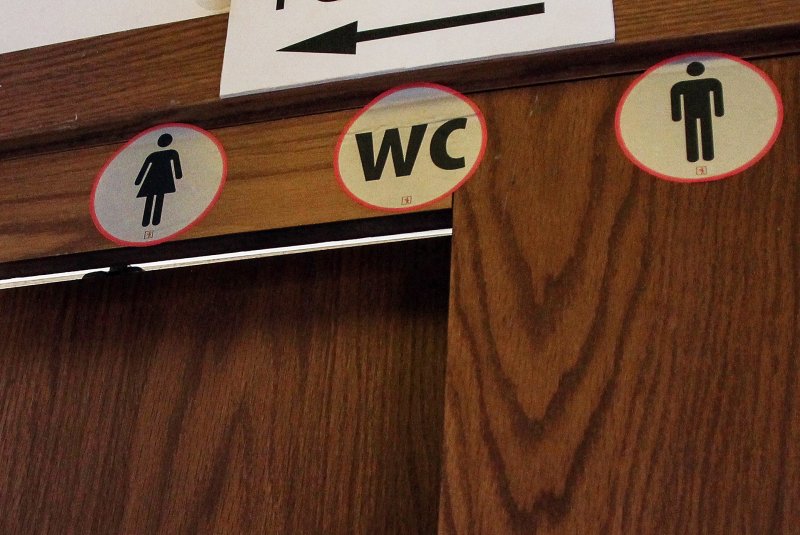An entrance to a restroom with signs for man and woman is seen in a bar in Frankfurt, Germany. File Photo by Armando Babani/EPA-EFE
Dec. 14 (UPI) -- The German legislature voted Friday to include a third, neutral gender -- in addition to male and female -- on government forms.
Under the law, Germans can choose a third option, "divers," which means diverse or other, on birth certificates and similar registrations. Those born with sex traits for which the usual binary notion of male and female is inadequate can be identified by this third choice.
Under the law, birth certificates can be changed retroactively if the identified gender is incorrect, and German citizens can change their first name on a certificate if the gender was incorrectly noted. A medical certificate will be required in each case.
Austria, Australia, New Zealand, India, Canada and Portugal have all introduced legislation for a third gender option.
German Parliament was ordered by the Federal Court of Justice in 2017 to allow people to register as intersex or identify as something other than male or female -- or eliminate sex identification entirely. After a court case in which a plaintiff asked to be reclassified as "inter/diverse," judges ruled the obligation to choose only between male and female was discriminatory.
Since 2013, Germany has allowed a blank space denoting gender on birth certificates for babies born with undefined sex characteristics.
The new legislation was scorned across Germany's political spectrum. The AfD Party opposed it, with leader Beatrix von Storch saying gender is "an objective fact since the beginning of time."
The Green Party called the law too restrictive, with leader Anton Hofreiter calling it a "preposterous and a sign of distrust of those who don't fit into an old-fashioned view of society."
The Lesbian and Gay Foundation in Germany answered that physical characteristics shouldn't be the only defining factors of identification. Board member Henny Engels said gender "is not only defined physical signs, but also by social and psychological factors."
Other LGBT activist groups objected to the law's requirement of a doctor's certificate to legally change gender.
Globally, as many as 1.7 percent of people are intersex, the United Nations has said -- about the same percentage as those born with red hair. The condition is typically observed at birth or in puberty.















